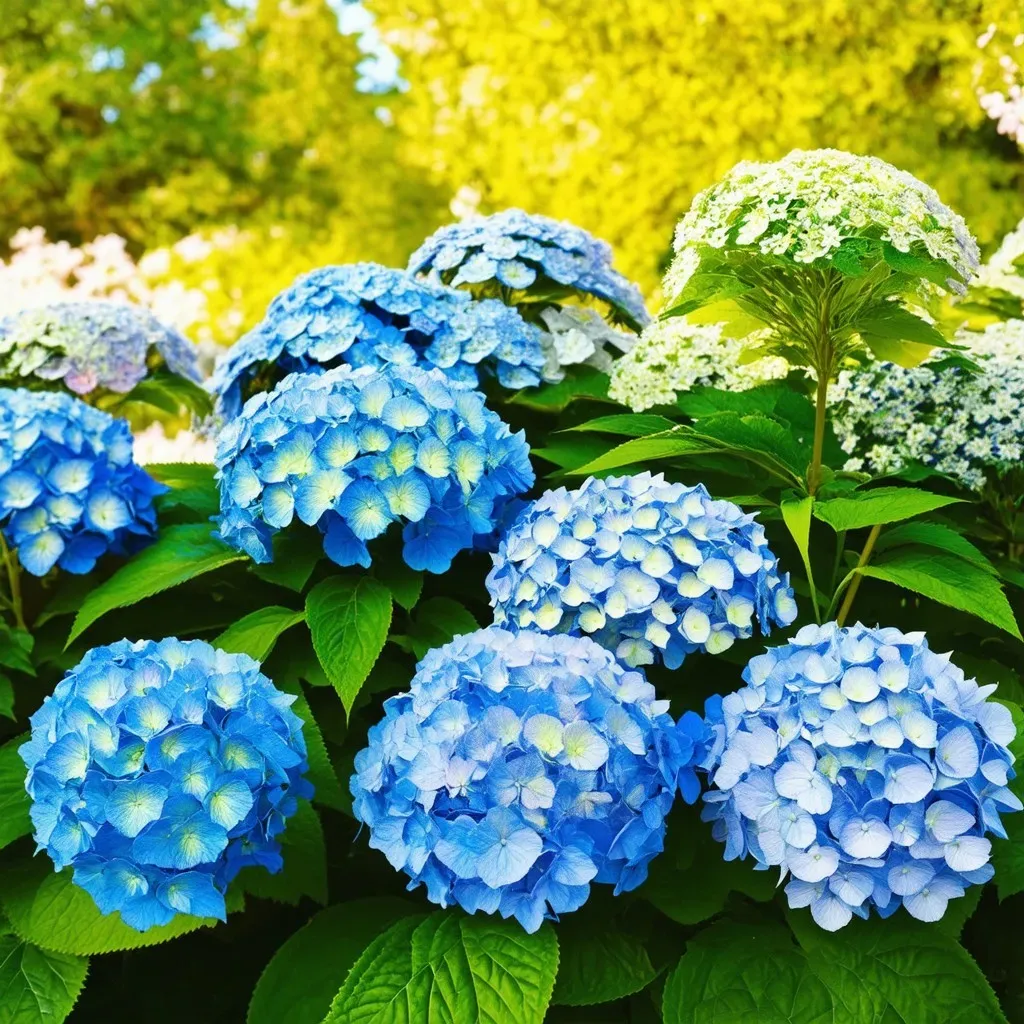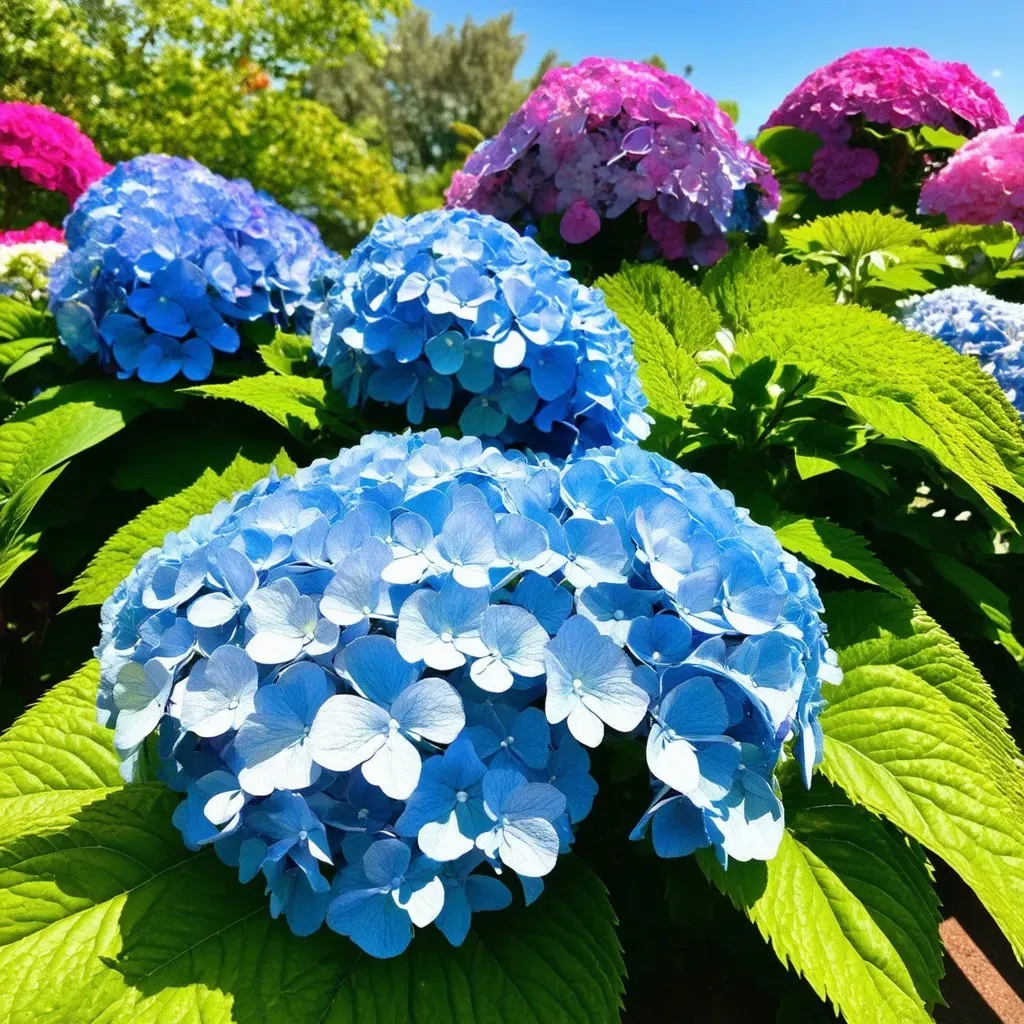Hydrangeas are beloved for their vibrant blooms and lush foliage, but did you know that they can suffer from too much sun exposure? Understanding how much sunlight hydrangeas truly need is essential for maintaining their health and beauty.
What Happens When Hydrangeas Get Too Much Sun?
Hydrangeas enjoy sunlight but can be sensitive to prolonged exposure. Most hydrangea varieties thrive on 4 to 6 hours of morning sunlight. However, too much direct sun, particularly in the afternoon, can lead to a host of problems, including wilting, scorched leaves, and stunted growth. The Panicle Hydrangea (Hydrangea paniculata) is the exception, as it is more tolerant of full sun conditions.
Signs Your Hydrangeas Might Be Getting Too Much Sun
- Leaf Scorching: The most obvious sign of too much sun exposure is browning leaf edges and scorched foliage.
- Wilting Flowers: Hydrangea blooms may droop and become limp if they are not receiving adequate moisture, often a result of excessive heat.
- Stunted Growth: Healthy growth may halt as the plant struggles to absorb enough water.
- Reduced Bloom Quality: Flowers may be smaller and less vibrant due to stress from excessive sunlight.
Table: Sunlight Needs for Different Hydrangea Varieties
| Hydrangea Variety | Ideal Sunlight Exposure | Notes |
|---|---|---|
| Bigleaf Hydrangea (H. macrophylla) | 4-6 hours morning sun | Prefers afternoon shade to prevent scorching |
| Smooth Hydrangea (H. arborescens) | 4-6 hours morning sun | Thrives with adequate water and protection |
| Panicle Hydrangea (H. paniculata) | 6+ hours full sun | Very tolerant, ideal for sunny locations |
| Oakleaf Hydrangea (H. quercifolia) | 4-6 hours morning sun | Prefers dappled light to avoid leaf burn |

Preventing Sun Damage to Your Hydrangeas
-
Choose the Right Location: When planting hydrangeas, consider the direction of your home and existing trees to maximize morning sunlight and provide afternoon shade.
-
Use Shade Cloths: If your hydrangeas are already planted in a sunny spot, consider using lightweight shade cloths to filter harsh sunlight.
-
Watering Techniques: Hydrangeas are thirsty plants, and adequate watering is crucial, especially during hot weather. Water early in the morning to minimize evaporation and let roots absorb moisture.
-
Watering Tips:
- Water deeply once a week to encourage deep root growth.
- In extreme heat, check for dryness more often and provide extra water if necessary.
-
Watering Tips:
-
Soil and Mulching: Well-draining soil is vital for hydrangea health. Using mulch around the base can help retain soil moisture and regulate temperature.
List: Hydrangea Care Tips for Sun Protection
- Opt for planting native hydrangea species that are suited for your climate zone.
- Maintain consistent moisture levels, especially during dry spells.
- Regularly check for pests and diseases that could exacerbate stress from sunlight.
- Remove spent flowers to encourage new growth and blooms.
Reference Video
Frequently Asked Questions (FAQ)
Can I grow hydrangeas in full sun?
Yes, but only certain varieties, such as Panicle Hydrangea, thrive in full sun. Most Other types prefer partial shade.
How do I know if my hydrangeas are stressed by the sun?
Signs include wilting flowers, scorched leaves, and reduced blooming. If you notice these changes, consider adjusting their exposure to sunlight.
What should I do if my hydrangeas start to wilt?
Check the soil moisture. If the soil is dry, water deeply. If overwatering is not the issue, consider moving the plant to a shadier location.
How often should I water hydrangeas in hot weather?
Aim for at least once a week, but during periods of excessive heat, check the plants often and water more frequently if they show signs of dryness.
For more detailed information on Hydrangea Care and sunlight conditions, check out this link to Garden’s Whisper.

Conclusion
Hydrangeas can indeed thrive under the right sunlight conditions, but it’s crucial to monitor their exposure, especially during extreme weather. By understanding the specific needs of your varieties and taking necessary precautions, your hydrangeas can remain vibrant and healthy, brightening your garden with their stunning blooms throughout the season. The key lies in balancing sunlight with proper hydration and care.
Now, with the necessary knowledge at your disposal, you can ensure your hydrangeas flourish beautifully without the risk of sun damage.


